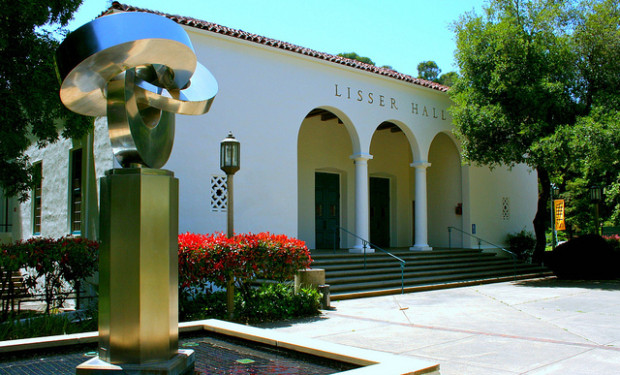Saving traditions by admitting nontraditional students
Women's colleges must look beyond cisgender female applicants to keep them afloat.
This article is the third in a three-part series on legal issues facing women’s colleges. You can read Part One and Part Two here.
For 145 years Chatham University has provided Pittsburgh-area women with the chance to pursue higher education opportunities in a single-sex learning environment. On May 1, 2014, university president Esther Barazzone announced that men would be admitted to the school’s undergraduate programs beginning with the Fall 2015 semester. Chatham adds its name to the list of institutions which have found that the single-sex model of education is not viable in the current economic climate. Other women’s colleges making the decision to go co-ed in recent years include Georgian Court University and Wilson College in 2013, Peace College (now William Peace University) in 2012, and Rosemont College in 2009.
If the remaining women’s colleges in the United States wish to keep their female-focused programs economically feasible in the face of declining enrollment, they must adapt and grow in order to attract students. One way to help these schools stand out to a wider pool of potential applicants is to allow for the admission of transgender applicants. Many transgender individuals have expressed interest in women’s colleges, citing reasons such as a social justice-oriented learning experience, a more accepting atmosphere, and a safer environment that traditional college to explain their interest in such institutions. Transgender students will come to these schools, but the schools must figure out how to admit them without compromising the goals of single-sex education.
The default option, currently employed by most women’s colleges, is to admit only applicants who are legally female. This method opens the door for male-to-female (MTF) transgender applicants, but only if they have gone through the necessary process to have their gender legally changed. The vast majority of states require the completion of gender reassignment surgery before a person’s gender can be legally changed, a tall order for a high school senior. This method also allows for the admission of female-to-male (FTM) transgender applicants whose gender is still legally listed as female. While college administrators have been quicker to embrace FTM students (for example, Mount Holyoke College will reissue a diploma to reflect transgender graduate’s new name), some female students have spoken out against allowing FTM students on campus, arguing that doing so detracts from the mission of women’s colleges.
Another option is to admit only applicants that self-identify as female, regardless of the gender assigned to them at birth. Mills College has pioneered the self-identification application method, admitting “students who were not assigned to the female sex at birth but live and identify as women at the time of application [and] students who are legally assigned to the female sex, but who identify as transgender or gender fluid.” This method would have the opposite effect of the default method, granting admission to MTF applicants while denying admission to FTM applicants. In order to make this method work, schools would need to set clear guidelines to ensure that potential students who identify as female on their applications are doing so truthfully.
The option which would create the biggest pool of potential applicants is to follow the model of historically black college and universities (HBCUs). HBCUs do not limit admissions to one race, but the education provided at such institutions is geared towards the needs and experiences of African American students. In the same way, women’s colleges could grant admission to applicants of all genders while maintaining a curriculum that focuses on the needs and experiences of women. The majority of students and alumnae of women’s colleges would likely find it difficult to accept the admission of men to their school, but this may be the only way to preserve a college’s female-focused mission when the school is already being forced into coeducation by financial concerns.






